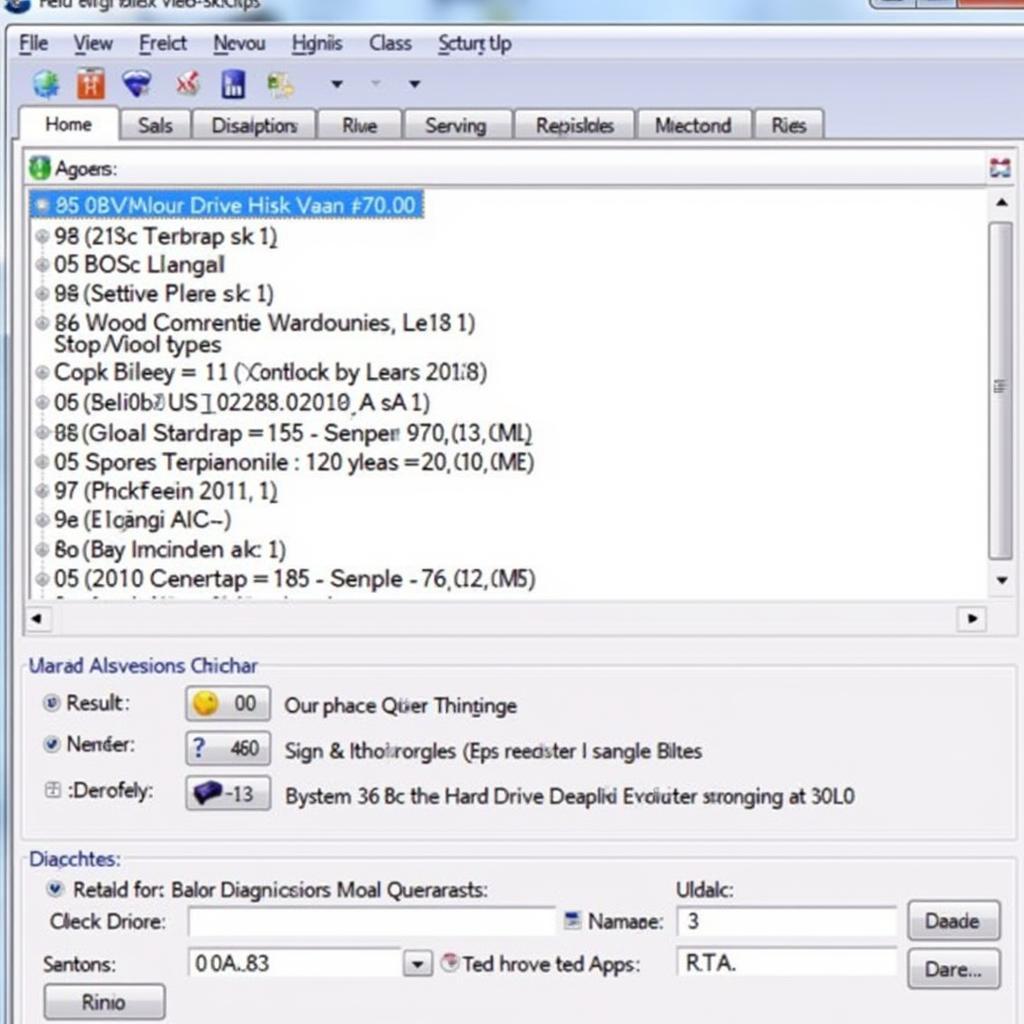In today’s technologically driven world, computers have become indispensable, powering everything from our vehicles to our homes. As cars become increasingly reliant on complex electronic systems, the need for sophisticated Diagnostic Tools For Computer Repair has skyrocketed. Whether you’re a seasoned mechanic or a car enthusiast looking to delve into DIY repairs, having the right tools can mean the difference between a quick fix and days of troubleshooting.
Understanding the Power of Diagnostics
Gone are the days of relying solely on mechanical know-how to diagnose car problems. Modern vehicles are equipped with Electronic Control Units (ECUs) that monitor and control a vast array of functions, from engine performance to safety features. These ECUs generate a treasure trove of data that can pinpoint issues with incredible accuracy.
This is where computer repair diagnostic tools come into play. These tools act as a bridge between the complex electronics of your car and your understanding, translating cryptic error codes into actionable information.
Key Types of Diagnostic Tools
Navigating the world of computer repair software diagnostics tools can feel overwhelming, but it doesn’t have to be. Here’s a breakdown of some essential tools:
1. Code Readers: The Entry Point
Think of code readers as the starting point in your diagnostic journey. They plug into your car’s OBD-II port (usually located under the dashboard) and retrieve Diagnostic Trouble Codes (DTCs). These codes provide a general indication of where the issue might be.
2. Scan Tools: Taking a Deeper Dive
Scan tools go beyond basic code retrieval. They offer:
- Live Data Streaming: View real-time sensor readings, allowing you to monitor engine parameters, transmission performance, and more.
- Bi-Directional Control: Test individual components like actuators and solenoids to pinpoint faulty parts.
- Advanced Functions: Depending on the model, scan tools can perform tasks like key programming, ABS bleeding, and more.
3. Oscilloscopes: Visualizing Electrical Signals
For intricate electrical diagnoses, oscilloscopes are invaluable. They allow you to visualize the shape and behavior of electrical signals, helping you diagnose issues with:
- Sensors
- Actuators
- Wiring harnesses
4. Multimeters: The Electrical Workhorse
A trusty multimeter is a must-have for any mechanic or DIY enthusiast. It measures:
- Voltage
- Current
- Resistance
This information is crucial for testing circuits, checking for continuity, and diagnosing electrical faults.
Choosing the Right Tool for the Job
With so many options available, selecting the right computer repair diagnostic tools depends on your needs and budget.
- DIY Enthusiasts: A code reader or a basic scan tool can be a great starting point for diagnosing common issues.
- Home Mechanics: Investing in a more advanced scan tool with bi-directional control and live data capabilities offers greater diagnostic power.
- Professional Mechanics: A comprehensive suite of tools, including a high-end scan tool, an oscilloscope, and a multimeter, is essential for tackling complex repairs.
Beyond the Tools: Expertise Matters
“Investing in high-quality [computer repair diagnostic tools](https://scantoolus.com/computer repair-diagnostic-tools/) is only half the battle,” says John Smith, a seasoned automotive electronics expert. “Understanding how to interpret the data, diagnose the root cause, and apply the right fix requires experience and continuous learning.”
Conclusion
As car technology continues to evolve, hardware and software diagnostic tools are becoming increasingly essential for accurate and efficient repairs. By equipping yourself with the right tools and knowledge, you can confidently diagnose and resolve even the most complex automotive electronic issues.
For expert advice and top-of-the-line diagnostic tools, contact ScanToolUS at +1 (641) 206-8880 or visit our office at 1615 S Laramie Ave, Cicero, IL 60804, USA.


